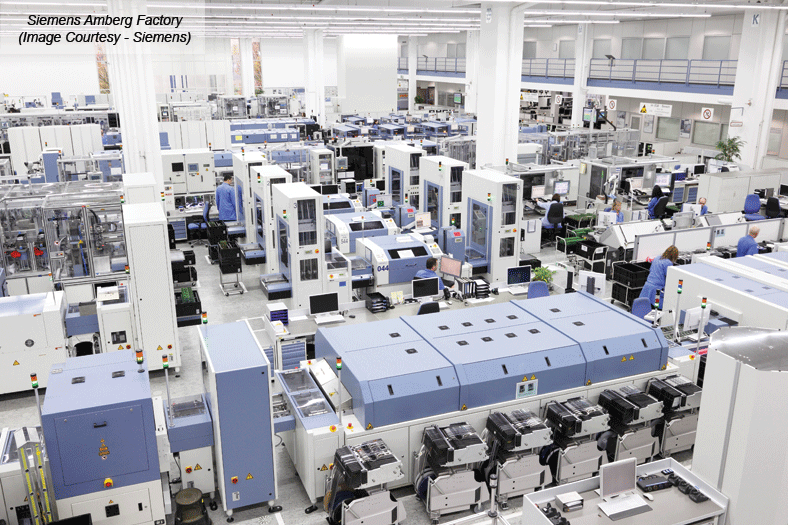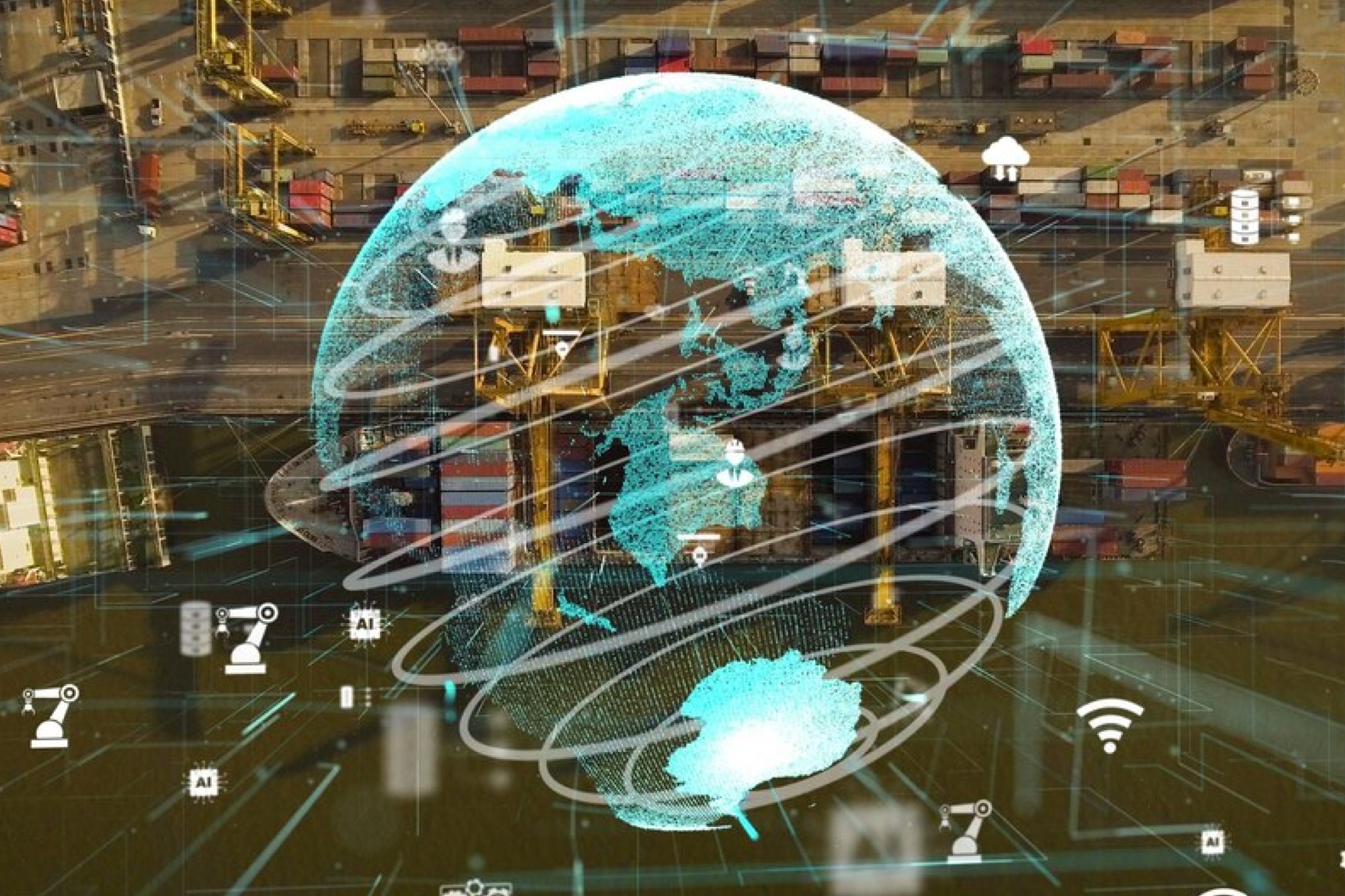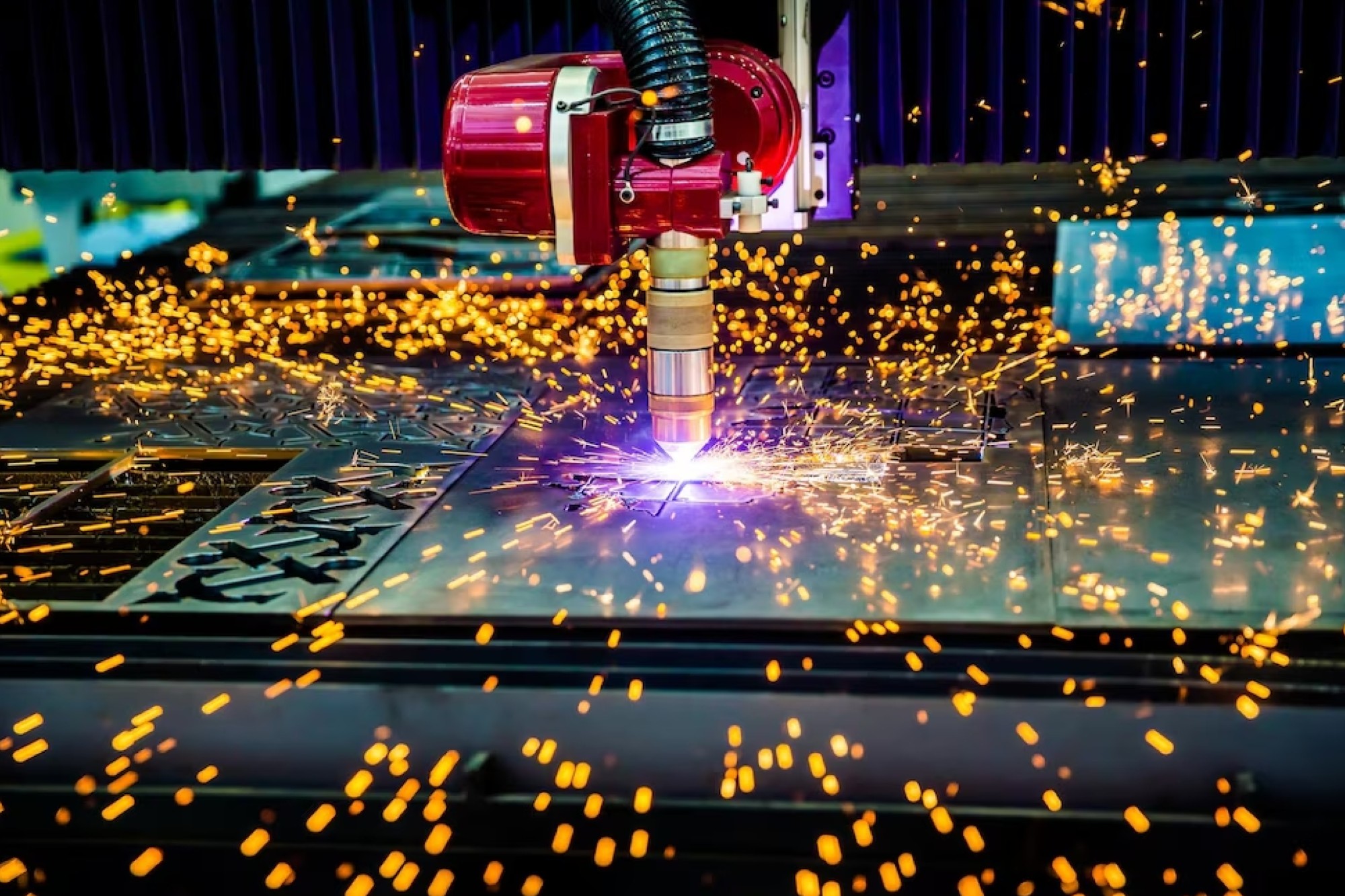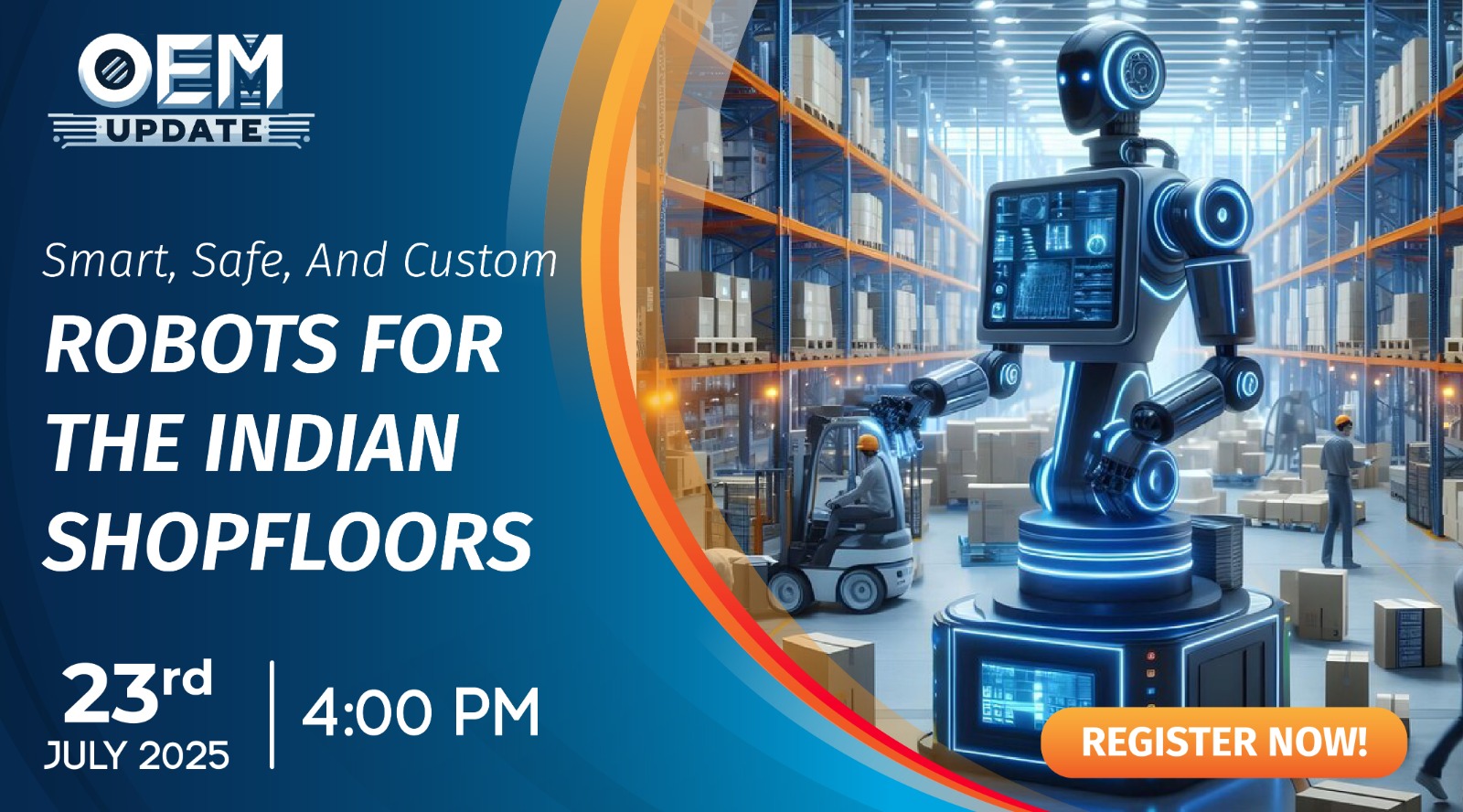Future Factory
By OEM Update Editorial August 31, 2020 2:01 pm IST
Technology is transforming the manufacturing industry. Here’s what 7 leading industry experts have to say on how companies are gearing up for ‘Future Factory’.
Subhajit Roy, Executive Editor
Smart manufacturing encompasses several technologies with a strong collaboration among various solution providers. Today, everyone wants to offer smart and advanced machines, lines or factories. Machine builders and factories are consistently working on making their life comfortable at the same time be efficient, sustainable, productive and profitable. Here’s what the leading industry experts have to say on digital transformation in the manufacturing industry:
How technology is transforming manufacturing
Bhaskar Mandal, Head, Digital Industries, Siemens: Industry 4.0 and digitalization has evolved over the past few years and is gaining acceptance among various manufacturing verticals. Evidently, players in both discrete and process industries have begun to see the long-term benefits of a Digital Enterprise – speed, flexibility, quality and efficiency of production or assembly as well as enabling new business models. The question is no longer about implementation but about thinking ahead toward true digital transformation.
Sanjeev Arora, President – Motion Business, ABB India: Smart and connected factories are the future of manufacturing. The fourth industrial revolution is allowing widespread use of sensors and connects machines and robots to the Internet. Using digital technologies to change business models and create new value-producing opportunities is expected to create immense customer value in the form of cost reductions and extra revenues.
The factory of the future is more than leveraging robotics process automation. It is also about sensors that connect devices and machines to the internet to monitor their condition and improve the performance of a production line, creating substantial cost savings. It is also about vertical integration of the supply chain, fully automated manufacturing processes, connecting the shop floor to the board room and creating highly flexible production systems.
Ninad Deshpande, Head – Marketing & Corporate Communication, B&R Industrial Automation: Evolutions in additive manufacturing, automation and industrial robotics are changing every manufacturing process. In a way, industrial revolutions and next generation technologies are not seen as disruptions but as enablers for economic development with possibilities of experiencing exponential growth with advent of new technologies. Today, AI, adaptive machine, additive manufacturing, Machine Learning (ML), virtual relative, digital twin are playing a vital roles in many industries. Manufacturing transformation is not an option but it is more of competitive necessity.
Prashanth Doreswamy, Country Head, Continental Corporation & MD, Continental Automotive India: Industry 4.0 has reinvented industrial processes to boost efficiency, productivity, optimise costs, and provide value to customers, among others, by using advanced technologies. The evolution of Industry 4.0 has inspired the industry to be more competitive and innovative, thus contributing to the manufacturing value chain.
Globally we have implemented AI and ML and robotics at various levels at our plants. While robotics helps in taking care of repetitive tasks, insights from AI and ML help in smart maintenance, quality improvement, market adoption, and better product development.
Connectivity, AI and ML have also helped in making Continental’s supply chain smarter. Automatic replenishment, big data analytics, TOMS (Transport Order Management Systems), GPS enabled vehicles (outbound logistics) across all plants, Continental Cloud services, etc., have helped in making SCM processes more efficient.
Sunil Mehta, GM – Automotive Business Development Department, Factory Automation & Industrial Division, Mitsubishi Electric India: Today, we are witnessing transition of a new era of automation: rapid advances in factory automation, robotics, AI for smart factories. Manufacturers across sectors are relying on robotic automation and IIoT to remain competitive and bringing greater efficiencies on the shop-floor. In future manufacturing processes, augmented and virtual reality could play a greater role in increasing safety, and, in monitoring, maintaining and training related to manufacturing operations.
Sameer Gandhi, MD, OMRON Automation, India: A shop floor endowed with automation technologies is much more intelligent, productive and efficient than a conventional shop floor. Here the machines communicate not only with each other but also with the people working with them in their environment via a well-knitted and intricate network of products, systems, platforms and applications. This results into smart optimisation of the industrial processes enabling manufacturers to make the most of this industrial internet revolution. At the core of the technology are varied smart sensors and PLCs that can connect to the MES or ERP layer facilitating access to real-time information exchange and allow for higher productivity through greater OEE.
The smart factories allow operations to be executed with high reliability and minimal manual intervention. Automated workflows, improved tracking and scheduling, optimised energy consumption and synchronisation of assets – integral to the smart factory – increase uptime, quality and yield as well as reduce costs and waste.
Imagine an automotive assembly line, which would typically have a few thousand sensors. Now if any sensor from these fails, the entire line could stop working, which will require manual identification and repair/ replacement, leading to non-productive time. With IIoT, a manufacturer is enabled to connect the sensors in a way wherein we’re not only getting information from the sensor but also about the sensor. This makes it possible to look into the ambient conditions affecting the sensors and other deeper aspects giving birth to predictive maintenance with which the makers can predict the failure before it actually happens reducing disruptions due to unscheduled downtime.
Not only this, the new normal created by COVID-19 as well as the rapidly evolving end-customer landscape demands a strong push to the Indian manufacturing capabilities in the form of reducing manual intervention, worker & machine safety, design & energy optimisation, finest asset utilisation, big data & analytics, and not to forget zero-defect production. For all this, a connected shop-floor with connected supply chains and connected customers is the need of the hour.
Maulik Patel, Executive Director, Sahajanand Laser Technology Ltd (SLTL): We are a market and technology leader in laser cutting and engraving machines dedicated to manufacturing industries. Currently we are focusing on robotic solutions – cutting and welding and expanding its horizons. Along with this, we tend to keep up with the dynamic environment and are gradually coming up with new technologies, extending our research and exploring new opportunities. For instance, electric vehicles, where we are targeting light weight and safe automobile manufacturing requirements.
How companies are gearing up for ‘Future Factory’
Sanjeev Arora: Today, we are leading the digital transformation of industries with our suite of ABB Ability digital solutions. ABB Ability brings several ABB’s digital products, solutions and services under one umbrella. At global level, we have already introduced the ABB’s factory of the future that features industry-leading digital twin technology, which makes it possible to amend and optimise manufacturing without interrupting the production process. The solution is the first result of a strategic partnership between ABB and Dassault Systèmes.
Ninad Deshpande: B&R is a technology leader and an innovative company in the field of machine and factory automation. What today is paraded under the banner of Industry 4.0 or future factory has been common practice at B&R’s own production facilities for nearly a decade. The smart factory in our Upper Austrian town of Eggelsberg has been fully networked since 2006 and is being upgraded all the time. What we have is a single, homogeneous network that incorporates every machine and every building automation component as well as the ERP system. The ERP system plans an optimised order-processing schedule and ensures that logistics run smoothly. Parts that come from warehouse are delivered just in time. This is where one of the many advantages of B&R’s smart factory which comes into play. The plant in Eggelsberg is completely networked – both horizontally and vertically. In addition, we are proud to now have the largest self-consumption PV system in Austria and thus make our contribution to sustainability and environmental protection in our endeavour for sustainable future factory.
Sunil Mehta: The word “future factory” implies a setup where machines and IT systems communicate and interact autonomously. The smart factory or the future factory today represents a leap forward from more traditional automation to a fully connected and flexible system—one that can use a constant stream of data from connected operations and production systems to learn and adapt to new demands. Mitsubishi Electric’s e-F@ctory starter package is helping industries implement IIoT using minimal investment and infrastructure. It includes sample projects with pre-programmed functions of MELSEC iQ-R/iQ-F PLCs and GOT2000 Series HMIs for IIoT based operational monitoring and preventive maintenance.
Sameer Gandhi: OMRON is known as one of the leaders in advanced industrial automation with perhaps one of the widest end-to-end solutions portfolio. It entails smart sensors, robots, vision, machine safety, PLCs, servos and drives, based on our world renowned ‘i-Automation’ concept (‘i’ stands for intelligent, integrated and interactive) working towards ‘enabling the Indian manufacturers to make world-class in India’ in the wake of the speedily rising and demanding Industry 4.0 expectations.
Bhaskar Mandal: The ‘Digital Twin’, an integral part of a Digital Enterprise, has long since established itself in the industry. It is revolutionising processes along the entire value chain. As a virtual representation of a product, production process, or performance, it enables the individual process stages to be seamlessly linked. This creates a consistent improvement in efficiency, minimises failure rates, shortens development cycles, and opens new business opportunities: In other words, it creates a lasting competitive edge.
The digital twin of the product is created as early as the definition and design stage of a planned product. This allows engineers to simulate and validate product properties depending on the respective requirements. The same applies to the digital twin of production. It involves every aspect, from the machines and plant controllers to entire production lines in the virtual environment. In turn, the digital twin of performance is constantly fed with operational data from products or the production plant. This allows information like status data from machines and energy consumption data from manufacturing systems to be constantly monitored. At the same time, data-driven knowledge from systems like MindSphere – the open, Cloud-based IoT operating system from Siemens – can be fed back into the entire value chain all the way to the product system. This generates a completely closed decision-making loop for the continuous optimisation process. Thanks to our comprehensive domain expertise and optimised tools, Siemens is the only company that offers this holistic approach for merging the virtual and the real world. With this, we enable our customers to reduce their product development times while at the same time increasing the flexibility, productivity and environmental efficiency of their production processes.
Prashanth Doreswamy: Continental strongly believes in the use of smart and automated services – be it in the products we manufacture or in-house processes. We are implementing Industry 4.0 processes across all our plants in the world, which includes AI in product development and process automation.
In India, at our Bangalore plant, we have implemented Augmented Reality (AR) for remote assistance and problem-solving, Automated Guided Vehicle (AGV) for material movement on the shop floor, AI for facial detection of quality inspectors. We have also implemented cobots in our plants that are designed to work alongside and together with humans.
With the help of these technologies we are able to enhance the productivity of the workforce and the efficiency of the organisation in respect to output and problem solving. This has also enabled us to challenge the traditional way of working & have started implementing newer innovative ideas. Planning has been done to adopt several other technologies like E Kanban, automatic replenishment, AGVs for automation in the warehouse, E-Jidoka, AR for remote assistance and problem-solving, AI for facial detection of quality inspectors etc. Low cost automation concept called Chaku-Chaku has also been adopted to help us improve efficiency of our production lines.
Maulik Patel: Industry 4.0 is the new normal and with this SLTL Group thrives on innovation and is actively moving forward with this fourth industrial revolution. The new era is more about the unification of automation and digitization. To support it, SLTL offers various automated solutions for sheet metal cutting, 3D cutting and robotic cutting and welding. With the support of the in-house, DSIR approved, R&D department, we are constantly innovating and looking forward to expand our vision to provide customized automated solutions to the industry. Extensive measures are undertaken to develop new systems and bringing upgradation in the technology. Our team always looks forward to bring solutions for various industrial challenges with innovative technologies.Enabling technologies for smart manufacturing
Sanjeev Arora: ABB offers digital solutions that include innovative systems, software and services allowing companies of any size in the manufacturing and process industries to increase productivity, enhance operational efficiency, and improve safety and security.
In motion business, we have developed a compact ABB Ability Smart Sensor that can be easily attached to the frame of a low/high-voltage induction motor to measure key parameters, such as vibration, speed and temperature and provides analytical insights on the motor condition. Equipping a motor with an ABB Ability Smart Sensor typically reduces downtime by up to 70 percent, extends lifetime by as much as 30 percent and lowers energy use by up to 10 percent. We have also introduced our Smart Sensors for mechanical products which monitors the health of our Dodge brand mounted bearings and gear reducers, allowing users to reduce downtime, improve reliability, and operate safely. Our smart sensors can be used for centrifugal pumps too.
Our customisable drives Remote Condition Monitoring service helps in predictive maintenance planning by utilising remote data. It includes an expert analysis report on the drive’s condition and proactive e-mail alerts regarding potential faults or limited availability, ensuring that equipment is available, reliable and maintainable.
Integrating these standalone services, we recently introduced, the ABB Ability Digital Powertrain that consolidates sensor and drive data with Cloud-based analysis of all components into a single unit – from frequency converters and motors to pumps and bearings. This enables decisions on key issues, such as maintenance tasks more informed and reliable, while reducing the risk of down-time.
Ninad Deshpande: As a preferred automation and digitization solution provider to various machine builders and factories, B&R offers a spectrum of technologies and solutions enabling organisations to build smart machines, lines and factories. B&R combines state-of-the-art technology with advanced engineering to provide customers in virtually every industry with complete solutions for machine and factory automation, motion control, HMI and integrated safety technology. B&R is constantly redefining the future of automation engineering. The innovative spirit that keeps B&R at the forefront of industrial automation is driven by a commitment to simplifying processes and exceeding customer expectations. We are proud of the fact that we are an automation partner to market leaders in various industries when it comes to automation as well as digitization solutions. We enable machine builders and factories to benefit from technologies such as predictive maintenance, digital twin, edge computing, vendor independent cloud connectivity, batch size 1 production with mass customisation amongst others. In addition, we offer our customers a complete scalable, flexible and modular hardware and software enabling them to scale up their systems at any point in time.
Prashanth Doreswamy: Continental deals with automotive technology solutions. However, we are using a worldwide network of Industry 4.0 centres of excellence to create platforms for the exchange of knowledge and prepare the broad application of new manufacturing technologies. Innovative solutions like robotic process automation, big data analysis, and business intelligence software supports the organisation to work towards business excellence.
At Continental, we work with cobots to make work more exciting and versatile, with trivial and monotonous activities handled by the cobots, allowing employees to focus on higher-quality activities. Thus, preventing employees from unnecessary physical and mental stress. Thanks to advances in sensor and vision technology and increased computing power, cobots can safely work with people in a shared work environment. At present, we are using 1,600 cobots globally. Automatic optical inspection is helping us in making better quality products and enhancing our credibility in the market.
Sunil Mehta: For a smart factory to be achievable, the real-time utilisation of production shop-floor data and efficient connectivity with IT systems is essential. With Mitsubishi Electric’s IIoT offering – e-F@ctory, we offer seamless connectivity between the shop-floor and IT systems. Analyse on a real-time basis with optimal efficiency, predicative maintenances, traceability, energy management are possible with our e-F@ctory Solutions. With continuously enhanced performance on a wide range of Factory Automation products, Mitsubishi Electric uses e-F@ctory to optimise all aspects of production and coordinate information between MES systems and production floors. Our Edge computing component of e-F@ctory solution comprises of MELIPC (Industrial PC) and RDA, which ensures Analysis of the shop-floor data on a real-time basis. The real-time feedback ensures immediate corrective actions and reduces losses. With our Edge-computing it is possible to feedback necessary data to Shop-floor for immediate corrective actions and it reduces data traffic to upper software layer in real-time.
Sameer Gandhi: OMRON’s IIoT based solutions (including Traceability) are proving really valuable in helping the factories turn smarter and connected by helping them cope up with their biggest challenges like reducing downtime, decreasing frequency of sudden failures, improving changeover efficiency and real-time data based predictive maintenance.
Our robotics solutions – cobots, industrial and mobile robots – are also making noteworthy contribution to many manufacturing industries by delivering numerous values such as flexibility at the shop floor, impeccable product inspection supplemented with real-time collation of data and images, reducing development time, and by replacing activities which are mundane, high-precision, hazardous, burdensome, or the tasks that do not require critical thinking.
Bhaskar Mandal: Trends and developments in the world of IT like AI, edge computing, ML, and digital marketplaces as well as new forms of collaboration are providing additional momentum and are changing industrial workflows. This is the next stage in the digital transformation.
We will see far greater dovetailing of IT and OT (operational technology). We’re well-equipped for that step, because today we already continuously connect every step in the value chain, from design and engineering to production and services. In the future we’ll intermesh that aspect even further with IT applications, such as CRM and ERP systems. Our MES systems have already demonstrated the first steps for how that can work. And we’re also hard at work on developing integrated platforms, for example with edge computing. Combined with today’s or even tomorrow’s computing power it becomes possible to integrate advanced analytics into automation. New manufacturing techniques such as additive manufacturing are trying to address across many of our products including new levels of integration between software and hardware. This means we’re joining forces with our customers in thinking ahead to the future of industry. With a Digital Enterprise Suite, customers can begin investing today in future-proof solutions for the step-by-step implementation of Industry 4.0.
Players in both discrete and process industries have begun to see the long-term benefits of a Digital Enterprise – speed, flexibility, quality and efficiency of production or assembly as well as enabling new business models.
Bhaskar Mandal, Head, Digital Industries, Siemens
Using digital technologies to change business models and create new value-producing opportunities is expected to create immense customer value in the form of cost reductions and extra revenues.
Sanjeev Arora, President – Motion Business, ABB India
In a way, industrial revolutions and next generation technologies are not seen as disruptions but as enablers for economic development with possibilities of experiencing exponential growth with advent of new technologies.
Ninad Deshpande, Head – Marketing & Corporate Communication, B&R Industrial Automation
At present, we are using 1,600 cobots globally. Automatic optical inspection is helping us in making better quality products and enhancing our credibility in the market.
Prashanth Doreswamy, Country Head, Continental Corporation & MD, Continental Automotive India
For a smart factory to be achievable, the real-time utilisation of production shop-floor data and efficient connectivity with IT systems is essential.
Sunil Mehta, GM – Automotive Business Development Department, Factory Automation & Industrial Division, Mitsubishi Electric India
The smart factories allow operations to be executed with high reliability and minimal manual intervention.
Sameer Gandhi, MD, OMRON Automation, India
The new era is more about the unification of automation and digitization. To support it, SLTL offers various automated solutions for sheet metal cutting, 3D cutting and robotic cutting and welding.
Maulik Patel, Executive Director, Sahajanand Laser Technology Ltd (SLTL)
Cookie Consent
We use cookies to personalize your experience. By continuing to visit this website you agree to our Terms & Conditions, Privacy Policy and Cookie Policy.
















